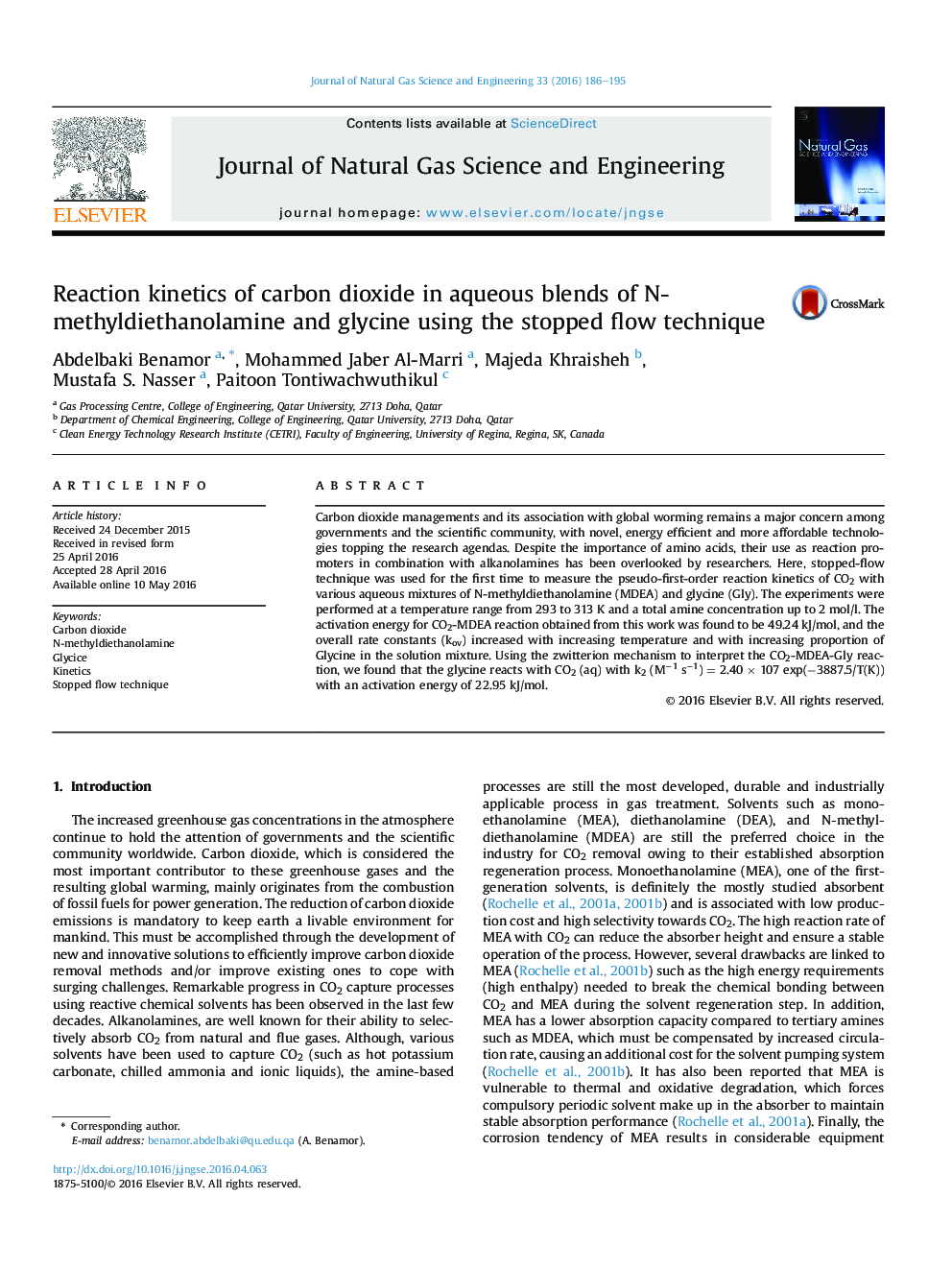| کد مقاله | کد نشریه | سال انتشار | مقاله انگلیسی | نسخه تمام متن |
|---|---|---|---|---|
| 1757059 | 1523008 | 2016 | 10 صفحه PDF | دانلود رایگان |

• Kinetics of CO2 with aqueous N-methyldietanolamine solutions mixed with glycine as a rate promoter is studied using the stopped flow technique.
• Contrary to other researchers, glycine is added to the amine alone and not being combined with any salt as usually done.
• The stopped flow technique is used to generate the overall rate constant which is fitted to a rate expression derived from zwitterion mechanism.
• At the contrary of other researchers, the reaction of CO2 with water in the overall rate constant was discarded from the analysis.
Carbon dioxide managements and its association with global worming remains a major concern among governments and the scientific community, with novel, energy efficient and more affordable technologies topping the research agendas. Despite the importance of amino acids, their use as reaction promoters in combination with alkanolamines has been overlooked by researchers. Here, stopped-flow technique was used for the first time to measure the pseudo-first-order reaction kinetics of CO2 with various aqueous mixtures of N-methyldiethanolamine (MDEA) and glycine (Gly). The experiments were performed at a temperature range from 293 to 313 K and a total amine concentration up to 2 mol/l. The activation energy for CO2-MDEA reaction obtained from this work was found to be 49.24 kJ/mol, and the overall rate constants (kov) increased with increasing temperature and with increasing proportion of Glycine in the solution mixture. Using the zwitterion mechanism to interpret the CO2-MDEA-Gly reaction, we found that the glycine reacts with CO2 (aq) with k2 (M−1 s−1) = 2.40 × 107 exp(−3887.5/T(K)) with an activation energy of 22.95 kJ/mol.
Journal: Journal of Natural Gas Science and Engineering - Volume 33, July 2016, Pages 186–195